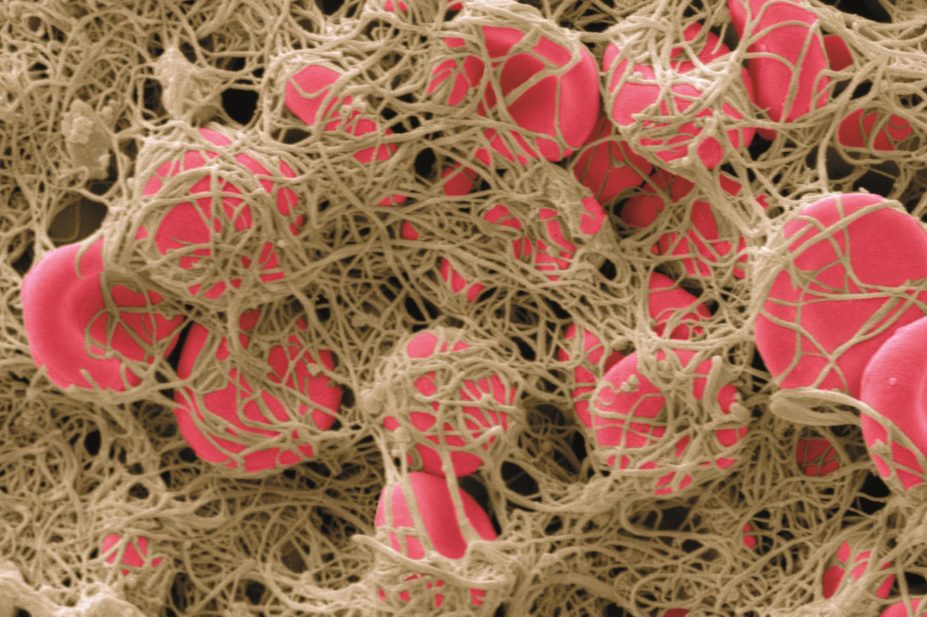
Steve Gschmeissner / Science Photo Library
Acquired thrombotic thrombocytopenic purpura (aTTP) is caused by an accumulation of von Willebrand factor — leading to clots in small blood vessels that can be fatal.
The rare blood disorder can be treated by plasma exchange and immunosuppressive therapy, but acute episodes are still associated with significant mortality (10–20%) and relapses are common.
Caplacizumab is an anti-von Willebrand factor humanised single-variable-domain immunoglobulin. Results from a phase II study show that this novel therapy leads to significantly faster resolution of aTTP than placebo in patients also receiving standard-of-care treatment, as shown by a 39% reduction in the median time to platelet normalisation.
The researchers, who report their findings in The
New England Journal of Medicine (online, 11 February 2016)[1]
, say the results suggest that caplacizumab could potentially prevent short and long-term organ damage associated with aTTP.
References
[1] Peyvandi F, Scully M, Kremer Hovinga JA, et al. Caplacizumab for Acquired Thrombotic Thrombocytopenic Purpura. The New England Journal of Medicine 2016; 374: 511-522. doi: 10.1056/NEJMoa1505533


